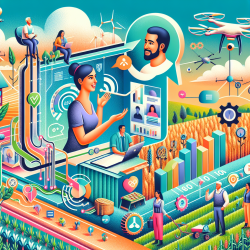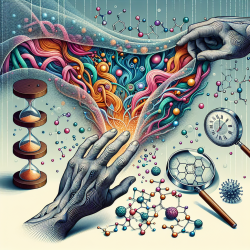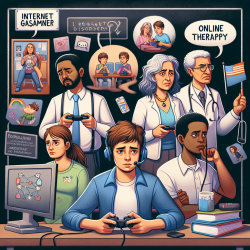Understanding Cellular Agriculture
Cellular agriculture synergizes computer science, biopharma, tissue engineering, and food science to produce cultured meat, dairy, and egg products. This technology has the potential to democratize ownership, broaden political-economic participation, and reduce environmental harms. However, it also faces challenges related to socioeconomic inequities and the concentration of power.Implementing Insights from Cellular Agriculture
The research article "Democratizing ownership and participation in the 4th Industrial Revolution: challenges and opportunities in cellular agriculture" provides valuable insights that can be applied to online therapy services. Here are some key takeaways:- Inclusive Innovation: Just as cellular agriculture seeks to democratize ownership and participation, online therapy services should aim to include diverse stakeholders in the development and implementation of therapeutic interventions. This could involve collaborating with parents, teachers, and other caregivers to create more holistic and effective therapy plans.
- Data-Driven Decisions: The success of cellular agriculture depends on data-driven research and development. Similarly, speech-language pathologists should leverage data to inform their therapy practices. This could include using assessment tools to track progress, analyzing data to identify areas for improvement, and adjusting therapy plans based on empirical evidence.
- Open Source Collaboration: The research highlights the importance of open-source collaboration in advancing technology. Online therapy services can benefit from a similar approach by sharing resources, tools, and best practices with other practitioners. This can lead to more innovative and effective therapy interventions.
Encouraging Further Research
The field of speech-language pathology can greatly benefit from further research into how technologies from other industries, like cellular agriculture, can be adapted and applied. Practitioners should be encouraged to stay updated with the latest research and explore interdisciplinary collaborations to enhance their practice.Conclusion
By integrating data-driven insights and promoting inclusive innovation, online therapy services can create better outcomes for children. The lessons from cellular agriculture provide a valuable framework for improving therapy practices and ensuring that all stakeholders are involved in the process.To read the original research paper, please follow this link: Democratizing ownership and participation in the 4th Industrial Revolution: challenges and opportunities in cellular agriculture.










